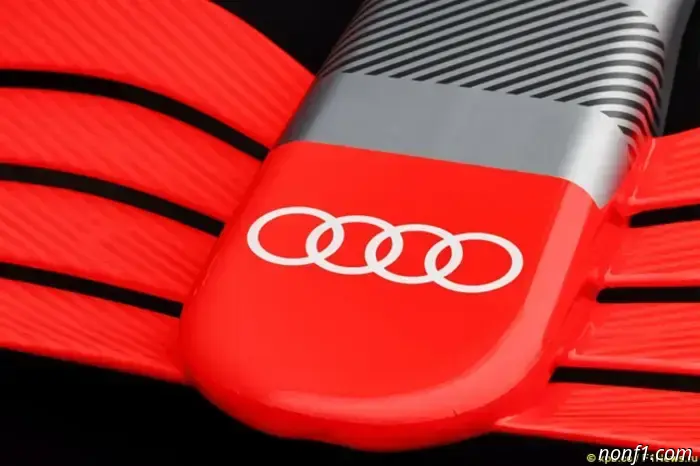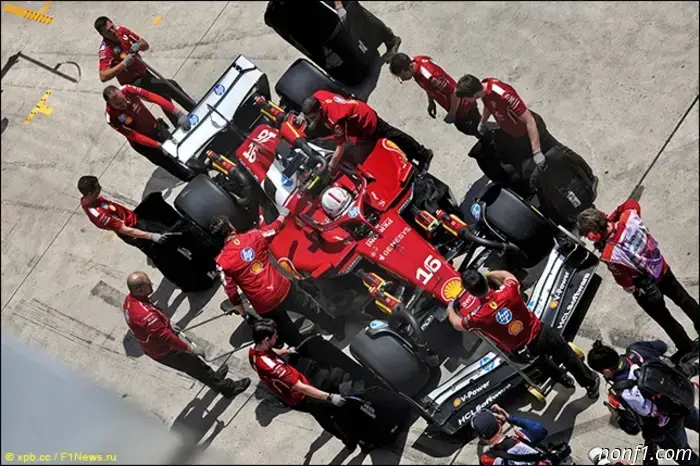
Audi has made it clear that it is against switching to V10 engines.
In the new season, discussions have begun in Formula 1 about plans to possibly abandon expensive hybrid power plants and return to naturally aspirated V10 engines powered by environmentally friendly fuels.
The FIA is discussing several options with manufacturers, one of which includes abandoning the transition to new-generation power plants in 2026, followed by the transition to the V10 in 2028 or 2029. However, such a decision requires the unanimous support of all participants in the championship, and it is already obvious that it will not be.
The Race edition has at its disposal a short statement from Audi, which will make its debut in Formula 1 next season with a new generation of hybrid power plants. The German automaker emphasizes that the decision to compete in Formula 1 was largely made due to the desire to develop hybrid technologies for subsequent use in production cars.
"Upcoming regulatory changes, including new requirements for hybrid powertrains for 2026 and beyond, were key factors in Audi's decision to join Formula 1," the statement said. "These powertrain regulations reflect the technological advancements that are driving innovation in Audi production vehicles."
Other articles
 DHL Fastest Pit Stop Award: Best Ferrari Pit Stop
In Shanghai, Ferrari mechanics performed the fastest pit stop, servicing Charles Leclair's car in 2.05 seconds...
DHL Fastest Pit Stop Award: Best Ferrari Pit Stop
In Shanghai, Ferrari mechanics performed the fastest pit stop, servicing Charles Leclair's car in 2.05 seconds...
 Past Grand Prix statistics: Races and drivers
The statistics of the drivers' performances in the past Grand Prix...
Past Grand Prix statistics: Races and drivers
The statistics of the drivers' performances in the past Grand Prix...
 Schumacher believes Tsunoda should turn down Lawson's race seat.
Formula 1 | There are rampant rumors suggesting that Liam Lawson has finished his second and final race weekend with Red Bull. Liam Lawson is already out for (…)
Schumacher believes Tsunoda should turn down Lawson's race seat.
Formula 1 | There are rampant rumors suggesting that Liam Lawson has finished his second and final race weekend with Red Bull. Liam Lawson is already out for (…)
 Alpine is the only team without points after two races.
The race in China turned out to be unsuccessful for Alpine – after two stages of the season, the team remains the only one with no points earned.
Alpine is the only team without points after two races.
The race in China turned out to be unsuccessful for Alpine – after two stages of the season, the team remains the only one with no points earned.
 Yuki Tsunoda can replace Liam Lawson already at Suzuka
Liam Lawson's poor start to the season has led Red Bull Racing to seriously consider replacing the New Zealand driver with Yuki Tsunoda at the next stage in Suzuka, and Franco Colapinto is rumored to take Yuki's place at Racing Bulls.
Yuki Tsunoda can replace Liam Lawson already at Suzuka
Liam Lawson's poor start to the season has led Red Bull Racing to seriously consider replacing the New Zealand driver with Yuki Tsunoda at the next stage in Suzuka, and Franco Colapinto is rumored to take Yuki's place at Racing Bulls.
 Alpine will not challenge Gasly's disqualification.
Following the results of the Chinese Grand Prix, the results of not only the Ferrari drivers, but also Pierre Gasly were excluded from the race protocol. Unlike Ferrari, Alpine did not explain the reason for the underweight of the racer's car, limiting itself to the general phrase "technical violation".
Alpine will not challenge Gasly's disqualification.
Following the results of the Chinese Grand Prix, the results of not only the Ferrari drivers, but also Pierre Gasly were excluded from the race protocol. Unlike Ferrari, Alpine did not explain the reason for the underweight of the racer's car, limiting itself to the general phrase "technical violation".
Audi has made it clear that it is against switching to V10 engines.
In the new season, discussions have begun in Formula 1 about plans to possibly abandon expensive hybrid power plants and return to naturally aspirated V10 engines powered by environmentally friendly fuels.
